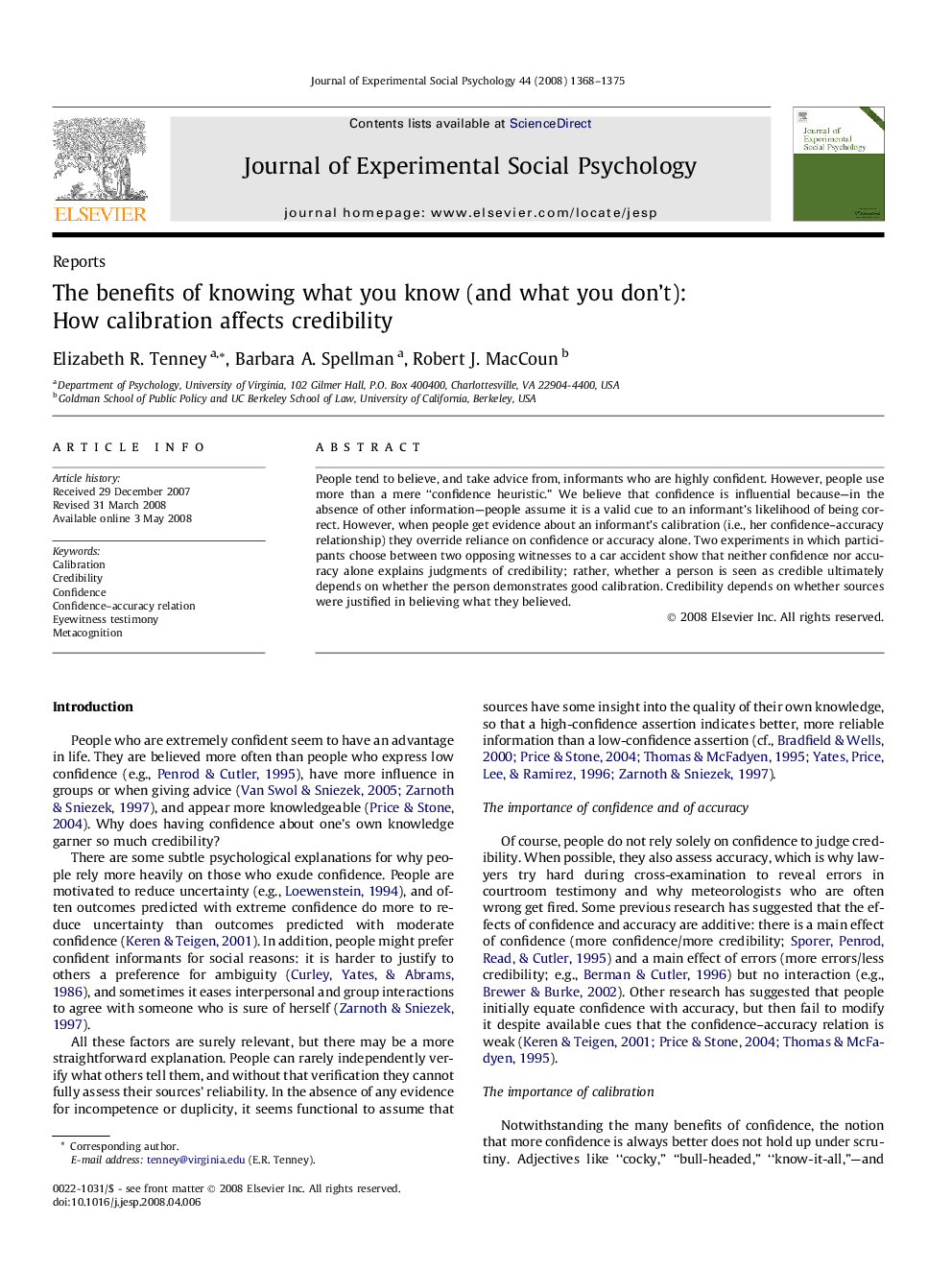| کد مقاله | کد نشریه | سال انتشار | مقاله انگلیسی | نسخه تمام متن |
|---|---|---|---|---|
| 947956 | 926451 | 2008 | 8 صفحه PDF | دانلود رایگان |

People tend to believe, and take advice from, informants who are highly confident. However, people use more than a mere “confidence heuristic.” We believe that confidence is influential because—in the absence of other information—people assume it is a valid cue to an informant’s likelihood of being correct. However, when people get evidence about an informant’s calibration (i.e., her confidence–accuracy relationship) they override reliance on confidence or accuracy alone. Two experiments in which participants choose between two opposing witnesses to a car accident show that neither confidence nor accuracy alone explains judgments of credibility; rather, whether a person is seen as credible ultimately depends on whether the person demonstrates good calibration. Credibility depends on whether sources were justified in believing what they believed.
Journal: Journal of Experimental Social Psychology - Volume 44, Issue 5, September 2008, Pages 1368–1375